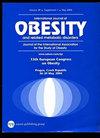代谢和减肥手术后低血糖的发生率和风险因素:系统综述。
IF 4.2
2区 医学
Q1 ENDOCRINOLOGY & METABOLISM
引用次数: 0
摘要
研究目的本研究旨在系统回顾现有文献,总结代谢和减肥术后低血糖(MBSH)的发生率和风险因素:我们检索了 PubMed、Medline、Embase 和 Cochrane 图书馆数据库中从开始到 2023 年 8 月发表的研究。方法:我们检索了 PubMedline、Embline 和 Cochrane 图书馆数据库中从 2023 年 8 月开始发表的研究,其中包括调查不同手术技术(包括 Roux-en-Y 胃旁路术、袖状胃切除术、胃束带术、十二指肠转换术、Ω-环胃旁路术和垂直束带胃成形术)后 MBSH 发生率或风险因素的随机对照试验和分析研究。根据不同的诊断标准,分别提取并描述了MBSH的发病率和风险因素,然后对风险因素及其统计结果进行了汇总:结果:共回顾了 29 项研究,随访时间从 1 年到 22 年不等。不同诊断方法的 MBSH 发生率差异显著:2.6%-66.4%(自我报告)、6.6%-61.8%(口服葡萄糖耐量试验)、29.4%-78.6%(混合餐耐量试验)和 50%-75%(连续葡萄糖监测)。平均年龄为 49.8 岁的患者中,89.0% 为血糖控制较好的女性,她们接受了 RYGB 并通过手术实现了 86.5% 的预计体重减轻,因此应特别警惕发生 MBSH 的可能性。IGF-1(OR 1.06)、空腹格列酮肽(AUC 0.81)、HbA1c(AUC 0.76)、体重绝对值减少(AUC 0.72)、血糖波动较大(OR 1.98)等不同的生物标志物对于及时发现 MBSH 具有重要价值。特别是,曾接受胆囊切除术或抗抑郁治疗的患者应特别谨慎:综述强调,RYGB术后体重明显减轻的年轻女性、曾接受胆囊切除术或服用抗抑郁药物的女性发生MBSH的风险较高。通过对 MBSH 标准的系统总结,我们确定了 MBSH 的预测因素,这有助于早期诊断和治疗,减少长期监测的需要。本文章由计算机程序翻译,如有差异,请以英文原文为准。

Incidence and risk factors of post-metabolic and bariatric surgery hypoglycemia: a systematic review
This study aimed to systematically review the existing literature to summarize the incidence and risk factors of post-metabolic and bariatric surgery hypoglycemia (MBSH). We searched PubMed, Medline, Embase, and the Cochrane Library databases for the studies published from inception to August 2023. Randomized controlled trials and analytical studies that investigated the incidence or risk factors of MBSH after different surgery techniques (including Roux-en-Y gastric bypass, sleeve gastrectomy, gastric banding, duodenal switch, omega-loop gastric bypass, and vertical banded gastroplasty) were involved. The incidence and risk factors of MBSH were extracted and described separately based on different diagnostic criteria and then summarized the risk factors and their statistical findings collectively. Twenty-nine studies were reviewed with follow-up ranging from 1 to 22 years. The incidence of MBSH ranged significantly across different diagnostic methods: 2.6–66.4% (self-report), 6.6–61.8% (oral glucose tolerance test), 29.4–78.6% (mixed-meal tolerance test), and 50–75% (continuous glucose monitoring). Patients with a mean age of 49.8 years and 89.0% of them were women with a better glycemic control who undergo RYGB and achieve 86.5% of estimated weight loss from surgery should be particularly vigilant about the possibility of developing MBSH. Distinct biomarkers such as IGF-1 (OR 1.06), fasting glicentin (AUC 0.81), HbA1c (AUC 0.76), and absolute weight reduction (AUC 0.72), greater fluctuations in glucose (OR 1.98) are valuable in promptly detecting MBSH. Specifically, patients with prior cholecystectomy or antidepressant therapy should be particularly cautious. The review highlights higher MBSH risk in younger women with significant weight loss after RYGB, and those with prior cholecystectomy or antidepressant use. Systematic summarization of MBSH criteria allowed us to identify the predictors for MBSH, which can aid in early diagnosis and treatment, reducing the need for prolonged monitoring.
求助全文
通过发布文献求助,成功后即可免费获取论文全文。
去求助
来源期刊

International Journal of Obesity
医学-内分泌学与代谢
CiteScore
10.00
自引率
2.00%
发文量
221
审稿时长
3 months
期刊介绍:
The International Journal of Obesity is a multi-disciplinary forum for research describing basic, clinical and applied studies in biochemistry, physiology, genetics and nutrition, molecular, metabolic, psychological and epidemiological aspects of obesity and related disorders.
We publish a range of content types including original research articles, technical reports, reviews, correspondence and brief communications that elaborate on significant advances in the field and cover topical issues.
 求助内容:
求助内容: 应助结果提醒方式:
应助结果提醒方式:


